Childhood as gendered, raced, and classed in media.
ASRA Past Recipients
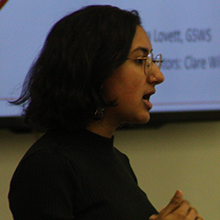
The Evolution of Representation of Girlhood in Popular Media
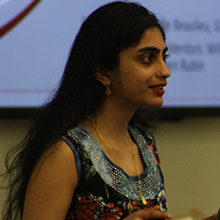
Conversations (or lack of) around intimate partner violence: Analysis of sensationalized media and feminist, student, and LGBTQ+ press
Conversations around intimate partner violence.
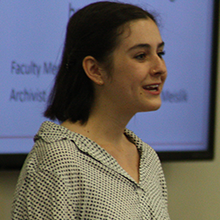
A Historical Analysis of Women in Pittsburgh Broadcast News
Evolution of feminine representation in Pittsburgh broadcast news reporting.
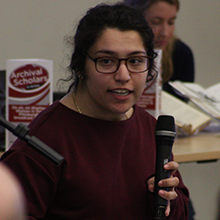
An art, historical, and bibliographical investigation of the Albertina Facsimile
In depth study of the Albertina Facsimile
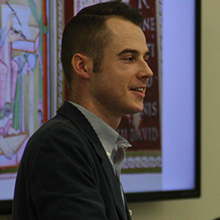
A Critical Look at Mechanical Reproduction and the Withering Aura of Art
Historical analysis of the medieval European facsimiles
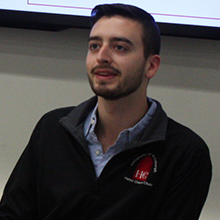
Sounds of the Time: Examining the History of the Heinz Chapel Choir and Changing Campus Culture
American choral tradition evolution into extracurricular and secular groups
Examining Narratives on the Homestead Strike
The Homestead Strike of 1892 was one of the important turning points in American labor history, emphasizing the importance of organized labor. With resources from the archives, I aim to investigate the economic actions of management during the event and retrace the experiences of laborers after the strike. With this, I aim to create a narrative with a humanistic approach in the conflict between management and labor.
The Music of the Middle Ages
This project will begin with a translation of Gregorian chants from Latin to English, focusing on the neumes below repeated words and phrases. This will begin my study of the importance of melodic repetition. This will then lead me to a cultural and philosophical study of the importance Gregorian chant ritual had throughout the Middle Ages in not only the Catholic church, but in medieval society as a whole.
A Rainbow of Gay Life: A Comparison of Pittsburgh’s Gay Communities in the 1970’s
I am interested in how institutionalized queer advocacy groups function differently from underground groups that have no university affiliation. I want to investigate the similarities and differences in topics the groups advocate for, their access to resources, and level of community engagement. I intend to achieve this goal by utilizing both the Rainbow Alliance archive and Pittsburgh’s Underground Press. Specifically, the Student Underground Press and the Gay Underground Press (Pittsburgh’s OUT magazine).
Portrayals of Black Women and 19th Century Black Face Minstrelsy
This project seeks to analyze popular portrayals of Black women and their bodies in cover art, songbooks, and songsterswithin19th century black face minstrelsy and what that reveals to us about early conceptualizations of Black women during that time. Their portrayals as unappealing, hypersexual, and mannish strikingly contradict traditional feminine ideals of beauty, frailty, and sexual restraint. Despite this characterization of woman existing as a form of oppression and social control for many, acknowledging it as a privilege denied to Black women and other categories of women is crucial for an intersectional appreciation of American women’s historical struggles
Transatlantic Constructions of Childhood in the Late 19th Century
This research exists as a continuation of an ongoing project that examines transatlantic constructions of girlhood in 19th-century periodicals. The proposed project will consist of performing a close reading of reader correspondence in St. Nicholas: An Illustrated Magazine for Young Folks. Following this close reading will be an examination of the ways in which St. Nicholas conceptualized and shaped girlhood and girls’ experiences. As a result, this project will contribute to the field of childhood studies by bringing to light the presence of girlhood in content frequently associated with boys and masculinity.
Art as Activism: an Exploration of activism through art in the era of the Black Panther
My research seeks to explore the black female identity as a psychological and artistic concept. Up until recently, my creative process has been solely informed by my own experiences and environments. After having completed the Brackenridge fellowship this past summer, I’m looking for a more historical perspective to inform my artistic practice. With this temporal focus in mind, I’d like to create a series of artwork that is inspired by archival research.




